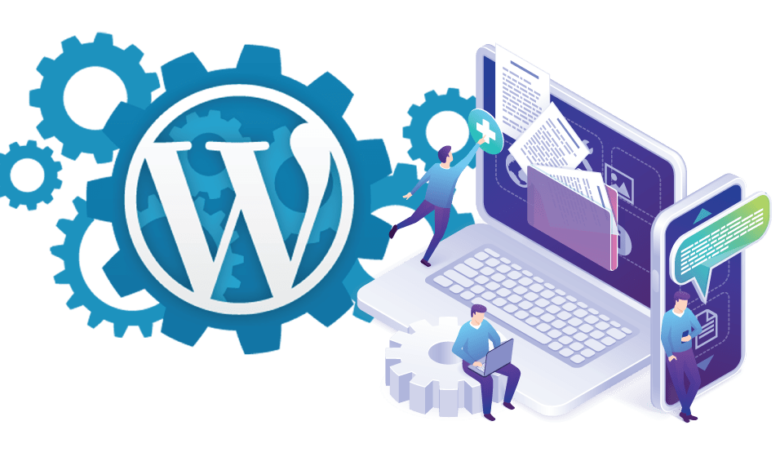
Introduction
Embarking on a website development journey is pivotal to establishing your online presence. In today’s digital landscape, a well-designed and functional website is essential for businesses, entrepreneurs, and individuals. Leveraging the power of WordPress, a versatile and user-friendly platform, can streamline the development process and empower you to create a compelling online presence effortlessly.
Website development in WordPress
Importance of Website Development
In an increasingly digital world, a website serves as your brand’s virtual storefront. It showcases your products or services and acts as a gateway for customer interaction and engagement. A well-designed website enhances credibility, fosters trust, and expands your reach to a global audience, thereby driving growth and success for your business.
Hostinger Hosting Packages: Your Ultimate Guide to Success!
Overview of WordPress
WordPress is the cornerstone of website development, powering over 40% of all websites on the Internet. Renowned for its flexibility, scalability, and extensive plugin ecosystem, WordPress empowers users to create anything from simple blogs to complex e-commerce platforms easily. Whether you’re a novice or seasoned developer, WordPress offers a robust foundation to bring your digital vision to life.
Planning Your Website Development
Before diving into the development process, meticulous planning is crucial to ensure the success of your website project.
Defining Your Goals
Clarifying your objectives and target audience lays the groundwork for a successful website. Determine the primary purpose of your website, whether it’s to showcase your portfolio, sell products, or provide valuable content. Understanding your audience’s needs and preferences enables you to tailor your website to effectively meet their expectations.
Choosing the Right Theme
Selecting a visually appealing and functional theme sets the tone for your website’s design. With thousands of free and premium themes available, consider factors such as responsiveness, customization options, and plugin compatibility. Choose a theme that aligns with your brand identity and enhances device user experience.
Planning Website Structure
Mapping out your website’s structure and navigation enhances usability and ensures seamless navigation for visitors. Create a logical hierarchy of pages and categories, prioritizing ease of access to essential information. Incorporate intuitive menus and breadcrumbs to guide users through your website effortlessly.
Building Your Website
With a solid plan, it’s time to bring your website to life using WordPress’s intuitive tools and features.
Installing WordPress
Setting up WordPress is straightforward. It requires a domain name, web hosting, and a few clicks to install the platform. Many hosting providers offer one-click WordPress installations, simplifying the setup process for beginners. Once installed, you can access the WordPress dashboard to customize your website and add content seamlessly.
YouTube SEO Course to Rank on First Page
Customizing Your Theme
Customize your chosen theme to personalize your website’s appearance and functionality. WordPress offers extensive customization options, allowing you to modify colors, fonts, layouts, and more to align with your brand identity. Leverage the built-in theme customizer or CSS to fine-tune every aspect of your website’s design.
Adding Essential Plugins
Extend the functionality of your WordPress website with plugins, which are third-party add-ons that enhance its capabilities. From SEO optimization and security to e-commerce integration and contact forms, there’s a plugin for virtually every need. Choose reputable plugins with regular updates and positive reviews to ensure compatibility and reliability.
Website Optimization
Optimizing your website is essential to improve its performance, user experience, and search engine visibility.
SEO Optimization
Implementing SEO best practices enhances your website’s visibility in search engine results, driving organic traffic and increasing your online presence. To boost your search engine rankings effectively, focus on optimizing meta tags, headings, and content with relevant keywords, improving site speed, and building quality backlinks.
Speed Optimization
A fast-loading website is crucial for retaining visitors and reducing bounce rates. Optimize your website’s speed by compressing images, minifying CSS and JavaScript files, leveraging browser caching, and utilizing content delivery networks (CDNs). Regularly monitor your website’s performance using tools like Google PageSpeed Insights to promptly identify and address speed-related issues.
Mobile Responsiveness
With most internet users accessing websites on mobile devices, ensuring your website is mobile-friendly is paramount. Choose a responsive theme that adapts seamlessly to various screen sizes and resolutions, providing an optimal viewing experience across desktops, smartphones, and tablets. Test your website’s responsiveness regularly and adjust as needed to accommodate evolving user preferences.
Stay tuned for in-depth insights into website development in WordPress, covering essential topics such as website security, content management, monetization strategies, maintenance, and support.
Also, Read How to Convert All WordPress Images in Webp with a Single Click
FAQs
- How do I choose the right WordPress theme? Selecting the right WordPress theme involves considering responsiveness, customization options, and plugin compatibility. Look for themes that align with your brand identity and offer the features you need for your website.
- What are the essential plugins for a WordPress website? Essential plugins for a WordPress website include those for SEO optimization, security, performance optimization, contact forms, and social media integration. Choose reputable plugins with regular updates and positive reviews to ensure reliability and compatibility.
- How can I improve my website’s SEO? To improve your website’s SEO, optimize meta tags, headings, and content with relevant keywords, improve site speed, and build quality backlinks. Regularly monitor your website’s performance using SEO tools and adjust as needed to enhance its visibility in search engine results.
- Why is website security important? Website security is essential to protect your website from cyber threats, data breaches, and unauthorized access. Implementing security measures such as SSL certificates, strong passwords, and plugins safeguards sensitive information and enhances user trust.
- How often should I update my WordPress website? Regular updates are crucial to maintaining the security



